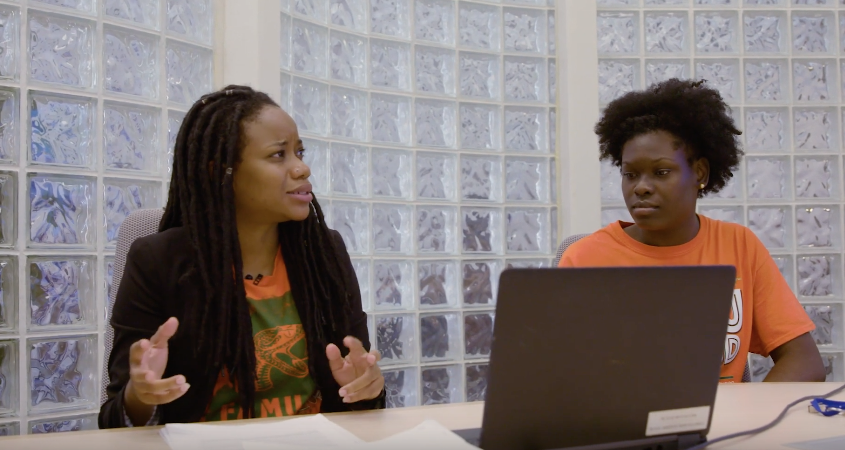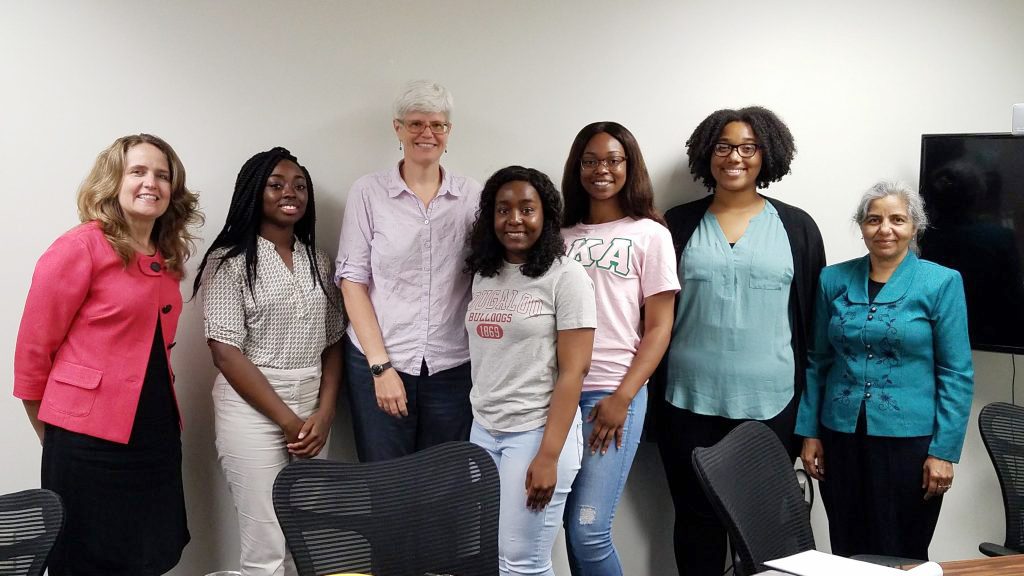The Coastal Resilience Center (CRC) continued its annual summer exchange programs in 2019, matching faculty and students with research opportunities between May and August and participating in the 2019 COE Summit – winning second place in one student-centric event.
CRC researchers hosted two groups of faculty and students from Minority Serving Institutions for 10 weeks this summer as part of the Department of Homeland Security (DHS) Science & Technology Directorate (S&T)-funded Summer Research Team (SRT) program. The SRT program aims to foster relationships for long-term projects and enhance scientific leadership at Minority Serving Institutions (MSIs) in DHS-relevant research areas.
Both Summer Research Teams also presented their work at the 2019 Centers of Excellence Summit, interacting with federal government and industry attendees.
This past summer, researchers at North Carolina State University, led by CRC PI Dr. Gavin Smith and North Carolina Sea Grant partners, hosted Dr. Michelle Dovil and students Tenesha Washington and Tia Maxwell from Florida A&M University. Researchers at Old Dominion University, led by PI Dr. Wie Yusuf and Dr. Michelle Covi, hosted Dr. Kulwinder Kaur and students Jaida Ellis and Genesis McClain from Elizabeth City State University (ECSU).
Dr. Dovil, a visiting professor in Florida A&M University’s Department of Sociology and Criminal Justice, and her two students examined community attitudes toward coastal hazards in North Carolina. The team’s project, titled “The Place We Call Home: The Risk Perceptions and Place Attachments of Coastal Communities at Risk for Sea Level Rise in North Carolina,” was inspired by Dovil’s own dissertation research while at Howard University.

Dovil and her students said the SRT experience was not only a unique research opportunity, but a chance to interface with potential collaborators and craft ideas for future work related to their study topic.
“I would definitely be interested in doing a follow-up study,” said Dr. Dovil, who is a former Bill Anderson Fund Fellow. She plans to expand their SRT research project to incorporate additional underserved populations, and hopes to one day write a book on risk perceptions and place attachments in coastal communities across the United States.
“This experience made me realize how much I really appreciate applied research and sociology, but also allowed me to find a new field, which would be city and regional planning,” Maxwell said. She and Washington, who are currently seniors at Florida A&M University, presented the team’s summer research in the student poster session at the 2019 COE Summit.
“I’ve had the opportunity to meet so many different people,” Washington said. Inspired by her SRT experience, she said she is now considering studying law with a focus on environmental justice.
Watch the NCSU-FAMU Summer Research Team video to learn more about the team’s study design and key findings.
Collaboration in Virginia communities

Dr. Kaur, her students and the ODU team partnered on a project “An Examination of Mental Health Effects of Hurricanes on Vulnerable Populations in Coastal North Carolina and Implications for Resilience.” The team studied mental health needs of under-resourced communities in North Carolina that have experienced long-term exposure to hurricanes and coastal hazards. The partnership combined expertise in psychology, sea level rise, community resilience, survey research, data analysis and stakeholder engagement.
Both students said they hoped to use the experience to help them reach their future professional goals.
“I am excited about gaining a new experience that I know is going to help me later in my professional life,” Ellis said. “I am also excited that I am able to conduct research on a population that I believe, in the past, has been overlooked in research.”
More on their summer experiences can be found at https://sites.wp.odu.edu/odudhscrcproject/.
